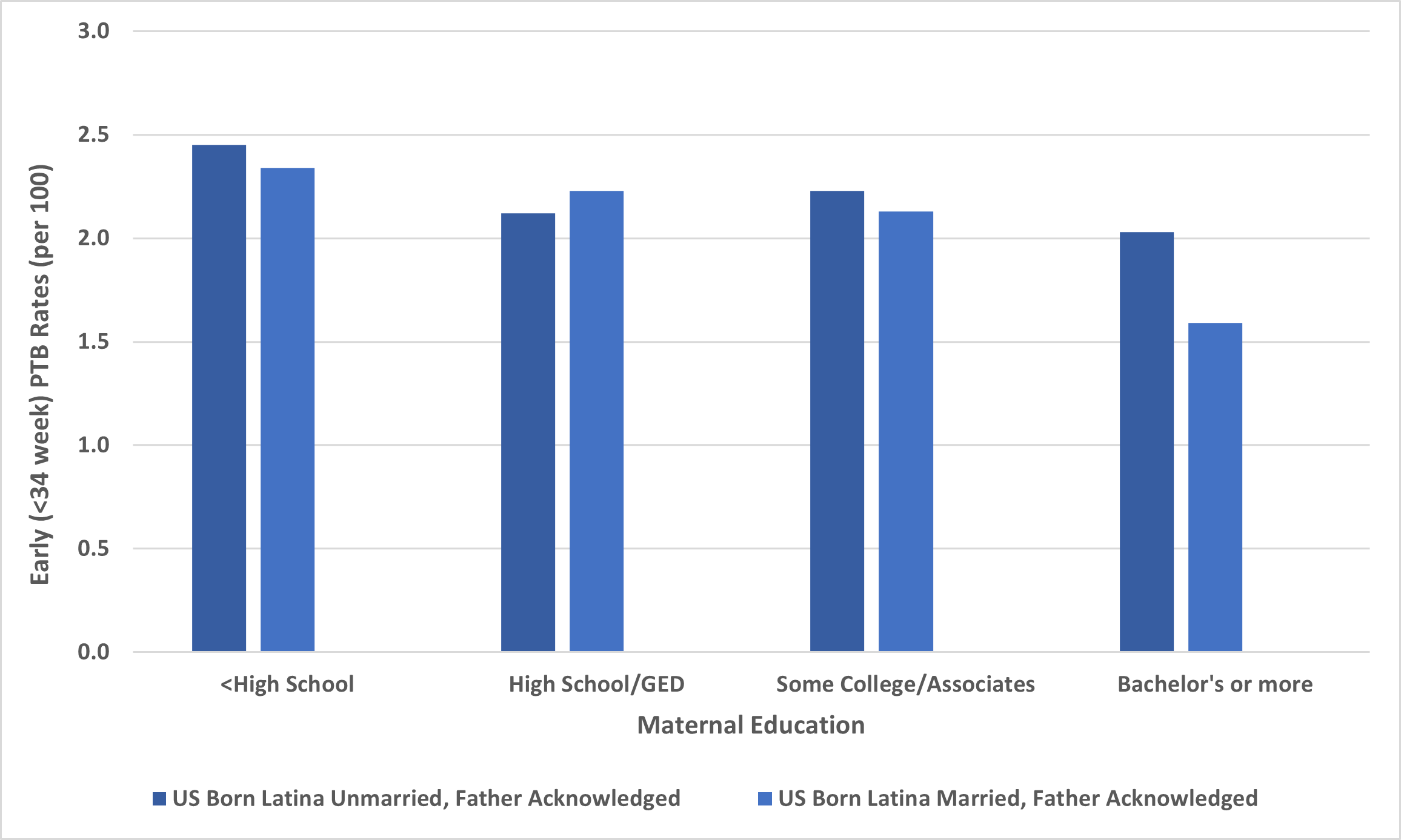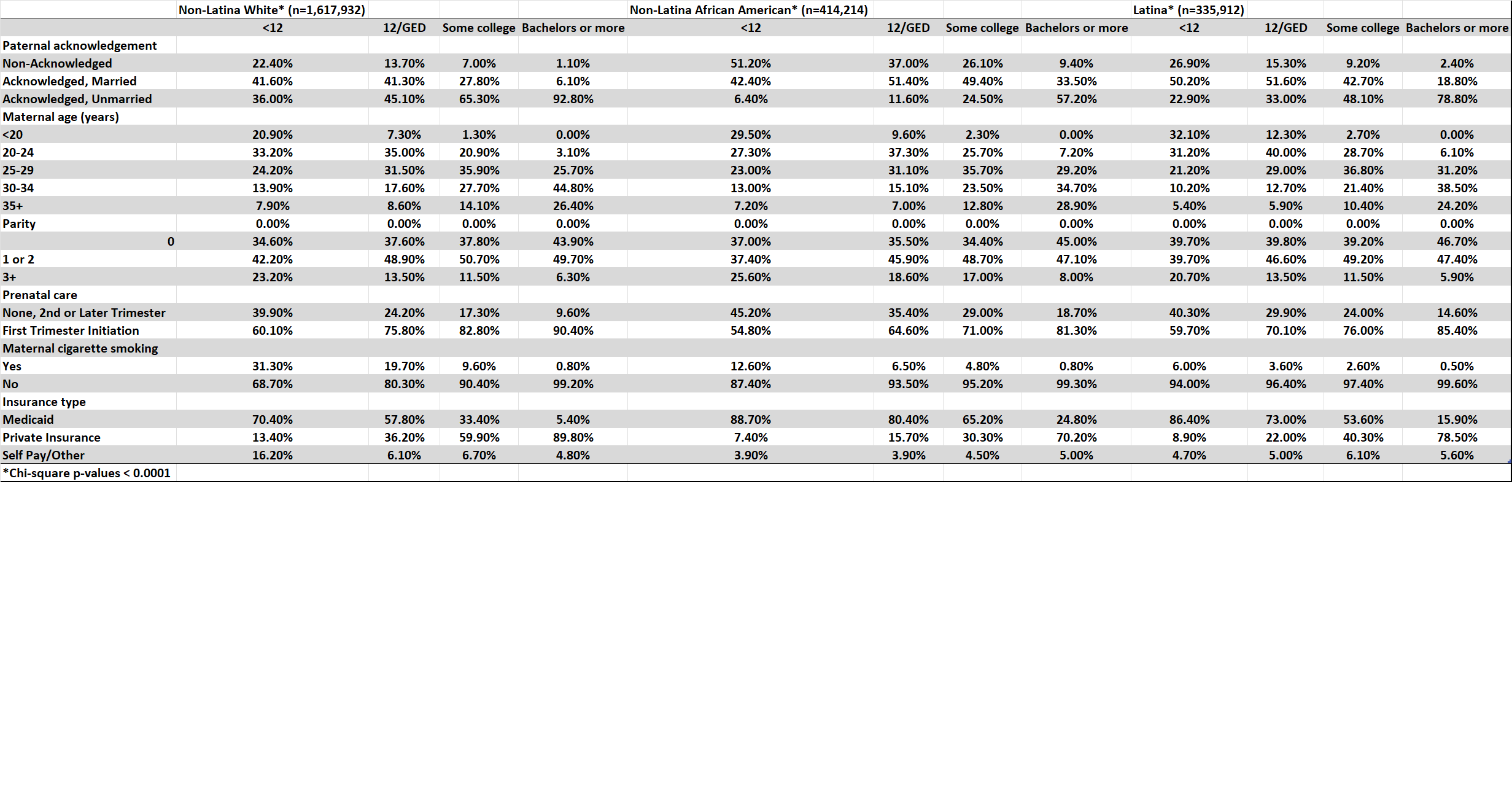Neonatal-Perinatal Health Care Delivery: Epidemiology/Health Services Research
Neonatal-Perinatal Health Care Delivery 1: Epi/HSR Equity
622 - The education-related patterns of early (< 34 week) preterm birth (PTB) rates among US-born Latina women: fathers’ matter!
Publication Number: 622.14

Catherine L. Austin, MD (she/her/hers)
Neonatal-Perinatal Medicine Fellow
Columbia University Vagelos College of Physicians and Surgeons
New York, New York, United States
Presenting Author(s)
Background:
The Latinx population is the fasting growing minority group in the US. It has long been recognized that US-born Latina women’s risk of adverse birth outcome exceeds that of their foreign-born counterparts, independent of commonly cited risk factors. Paternal involvement (as measured by acknowledgment on their infant’s birth certificate) is a novel social determinant of early PTB. The extent to which it impacts US-born Latina women’s birth outcome is unknown.
Objective:
To determine if paternal involvement modifies the relationship between US-born Latina women’s education attainment and early PTB rates.
Design/Methods: Using a cross-sectional population-based design, stratified and multivariable log binomial regression analyses were performed on the 2019 national vital records of singleton births to US-born Latina women (n= 335,912).
Results:
The percentage of births to US-born Latina women with non-acknowledged fathers ranged from 2.4% for those with a bachelor’s degree or higher to 26.9% for those with < a High School (HS) education (Table). Among births to US-born Latina women with acknowledged (unmarried or married) fathers, early PTB rates decreased as education attainment improved (Figure 1). Among births to US-born Latina women with acknowledged-married fathers, the adjusted (controlling for maternal age, parity, prenatal care initiation, cigarette smoking, and insurance status) RR of early PTB for those with a bachelor’s or higher (compared to < HS) degree equaled 0.5 (0.5, 0.6). Among births to US-born Latina women with acknowledged-unmarried fathers, the adjusted RR of early PTB for those with a bachelor’s or higher (compared to < HS) degree equaled 0.6 (0.5, 0.7). In stark contrast, PTB rates failed to decline as education attainment increased among births to US-born Latina women with non-acknowledged fathers (Figure 2); the adjusted RR of early PTB for those with a bachelor’s or higher (compared to < High School) degree equaled 0.9 (0.7, 1.3).
Conclusion(s):
The distribution of paternal acknowledgment (a strong proxy of paternal involvement) varies by US-born Latina women’s education attainment. Most striking, US-born Latina women’s early PTB rates decrease with rising education attainment only when fathers acknowledged. Greater research and public health attention to the contribution of fathers’ involvement to the birth outcome of US-born Latina women is warranted. 

.png)
